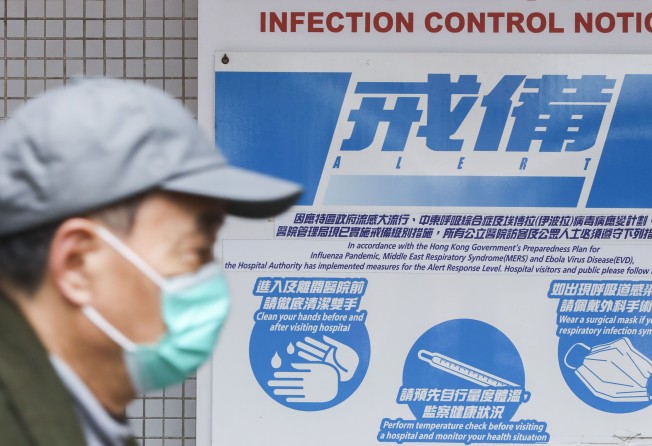Three more die as Hong Kong hospitals see increase in flu cases
Some 13 flu sufferers have died since the start of the year

Three more flu patients died in a single day recently as the number of people suffering from the disease is expected to rise, Hong Kong’s Centre for Health Protection has said.
The latest figures came after health officials announced on Wednesday that the city had entered a flu season, with a rising number of cases.
According to the latest issue of Flu Express, which is published weekly by the centre, as of Wednesday, 27 severe flu cases have been recorded among adults this year. Among them, 13 people have died.
While the centre confirmed on Wednesday that 10 adults with flu died during the first nine days of the year, the latest updates meant three more people died in a day. Those three were all aged over 65.
“It is anticipated that the local seasonal influenza activity will continue to rise in the coming weeks and remain at an elevated level for some time,” the centre stated in the publication.
A patient is classed as a severe case if he or she has been diagnosed with flu and required admission to intensive care or later died.
A three-year-old girl who was reported on Sunday to suffer from severe flu remained critical on Thursday. She was receiving medical care at United Christian Hospital in Kwun Tong.
It is anticipated that the local seasonal influenza activity will continue to rise in the coming weeks
Influenza B has so far been the predominant type circulating in the city. Among the respiratory specimens received by the centre in the first week of the year, 11.17 per cent of them tested positive for influenza B virus, in contrast with 1.71 per cent for subtype H1 influenza A virus and 1.58 per cent for subtype H3.
Dr Owen Tsang Tak-yin, chairman of the Hospital Authority’s Task Force on Clinical Management on Infection, believed the dominance of influenza H3N2 in the past contributed to the current emergence of influenza B.
“Influenza H3N2 has been dominant for a few years. Many people have been infected before and developed antibodies,” he said. “But they might not have antibodies against types that were not dominant before, including influenza B.”
Tsang estimated that quadrivalent flu vaccine, which affords protection from four types of flu viruses, could offer a 50 per cent efficacy rate against influenza B. He said that, in general, a flu vaccine could offer around 40 to 70 per cent protection overall against major types of flu.
He advised the public to receive vaccines to stay protected.
Statistics from the Hospital Authority showed that on Wednesday, 5,458 people visited accident and emergency services at public hospitals, with 974 of them admitted to public medical wards. The overall bed occupancy rate in public medical wards citywide was 106 per cent as of Thursday.